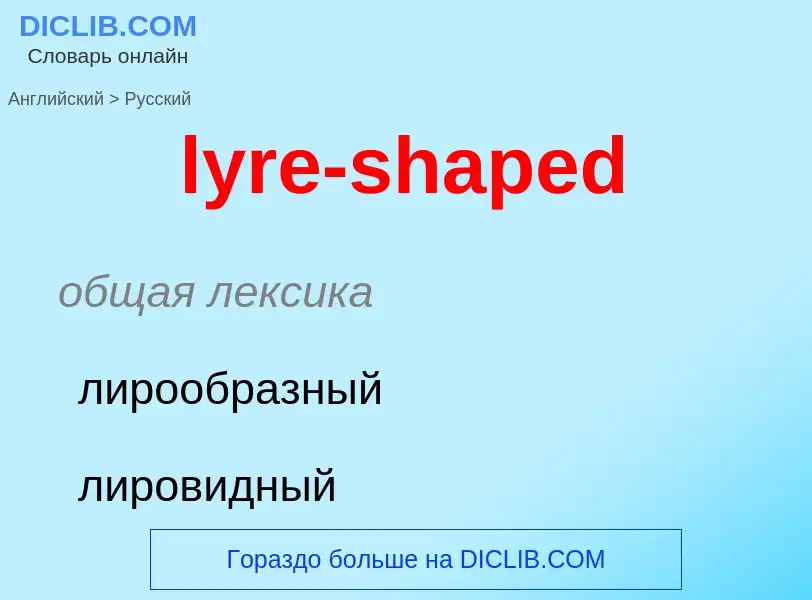Traducción y análisis de palabras por inteligencia artificial ChatGPT
En esta página puede obtener un análisis detallado de una palabra o frase, producido utilizando la mejor tecnología de inteligencia artificial hasta la fecha:
- cómo se usa la palabra
- frecuencia de uso
- se utiliza con más frecuencia en el habla oral o escrita
- opciones de traducción
- ejemplos de uso (varias frases con traducción)
- etimología
lyre-shaped - traducción al ruso
общая лексика
лирообразный
лировидный
общая лексика
шалфей лирообразный (Salvia lyrata)
['hɔləutʃɑ:dʒ]
военное дело
кумулятивный заряд
Wikipedia

A lyre arm is an element of design in furniture, architecture and the decorative arts, wherein a shape is employed to emulate the geometry of a lyre; the original design of this element is from the Classical Greek period, simply reflecting the stylistic design of the musical instrument. One of the earliest uses extant of the lyre design in the Christian era is a 6th-century AD gravestone with lyre design in double volute form. In a furniture context, the design is often associated with a scrolling effect of the arms of a chair or sofa. The lyre arm design arises in many periods of furniture, including Neoclassical schools and in particular the American Federal Period and the Victorian era. Well known designers who employed this stylistic element include the noted New York City furniture designer Duncan Phyfe.
The term lyre chair is a closely associated design element also originating in motif from the Greek Classical period and appearing often in chair backs starting circa 1700 AD. In the lyre chair, the splat features a pair of single lyre scrolls with bilateral symmetry. This particular splat chair back was a favourite motif employed by the well known English furniture designer Thomas Sheraton. Sometimes a chair of this design is called a lyre back chair.



.png?width=200)


![abbr=on}} [[Composition B]] 'formed projectile' used by combat engineers. The shaped charge is used to bore a hole for a cratering charge. abbr=on}} [[Composition B]] 'formed projectile' used by combat engineers. The shaped charge is used to bore a hole for a cratering charge.](https://commons.wikimedia.org/wiki/Special:FilePath/Defense.gov photo essay 110715-N-KG738-278.jpg?width=200)

![Sectioned [[high-explosive anti-tank]] round with the inner shaped charge visible Sectioned [[high-explosive anti-tank]] round with the inner shaped charge visible](https://commons.wikimedia.org/wiki/Special:FilePath/Obus 501556 fh000021.jpg?width=200)
